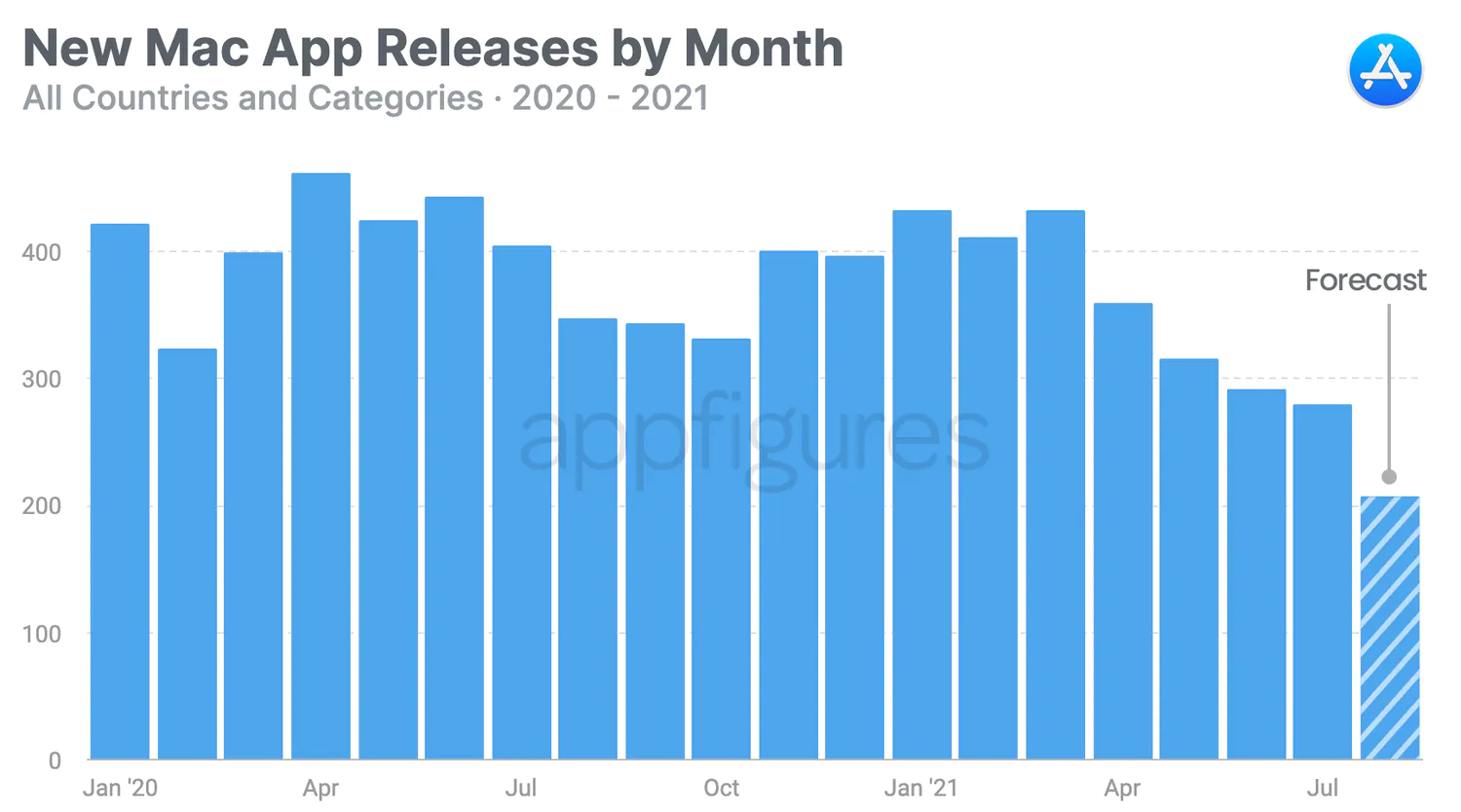
The Mac App Store is not as old as the iOS App Store, but it has been around for a long time — since 2010, to be specific. However, while the iOS App Store has become a huge success, new research shows that developers are becoming less interested in releasing new apps on the Mac App Store.
As revealed by app analysis firm AppFigures, the number of new apps submitted to the Mac App Store has been steadily declining since the beginning of this year.
In January 2021, more than 400 new macOS apps were released on the Mac App Store. In June, that number dropped to less than 300 new apps for the first time — and the forecast for August is to have about 200 new apps released on the Mac App Store. Compared to previous years, it’s clear that developers don’t seem interested in distributing Mac apps through the Mac App Store.
In 2020, developers released, on average, 392 new apps to the Mac App Store every month. The actual figures range between the low 300s and low 400s, so the average is a fair estimate. […] But our story continues because so far in 2021, the average number of new Mac apps has dropped to 343, with the variance growing drastically and the low end dropping into the low 200s.
Of course, the main reason why these numbers are declining is unknown since Apple never reveals what’s going on with its services when they are not doing well, but there are a few things that can be assumed. Unlike iPhone and iPad, the Mac allows users to install apps from outside the App Store.

As the AppFigures research pointed out, the Mac App Store “isn’t a destination at all” for some users, as they can simply download the apps directly from the developers’ website. Apple was also expecting developers to release their iOS apps on the Mac App Store for M1 Macs, but only a few of them have been made available on macOS.
Some developers have also expressed dissatisfaction with the Mac App Store in the past, as it lacked an easy way to offer trial or discounted bundles — not to mention the fact that Apple takes a 30% commission from every sale made in the App Store and the long periods waiting for app reviews. In most cases, it’s easier and simpler to distribute Mac apps by other methods.
In the meantime, Apple has been battling to keep the App Store as the only way to install apps on iOS. The company faced its first defeat in South Korea today with a new antitrust law that will force Apple and Google to let developers use third-party payment platforms without paying commission to the companies.
FTC: We use income earning auto affiliate links. More.





Comments